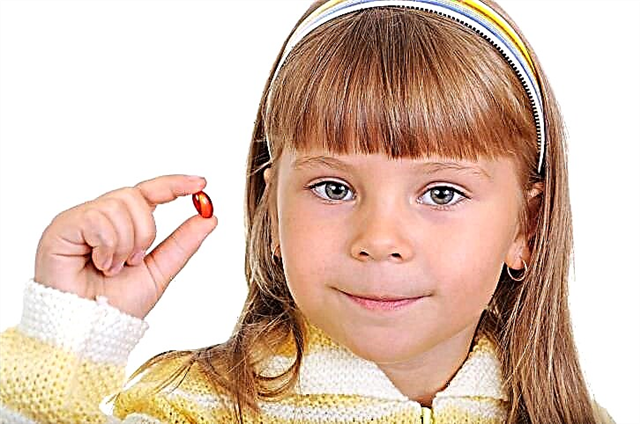Ear pain is one of the signs of otitis media. If a child has a sore ear with a runny nose, this may indicate an advanced acute respiratory viral disease. Treatment for colds should be started immediately to avoid dangerous consequences.

Ear hurts when a child has a cold
How to tell if your child has ear pain
With a disease, the baby's behavior suddenly changes: he becomes restless, refuses to eat.
Important! An infant under 5 months old may not feel acute pain.
Parents need to pay attention to the following features of the baby's behavior:
- the child rubs his head against the pillow;
- very restless;
- when feeding is nervous and cannot suckle for a long time;
- his body temperature rises;
- sometimes the stool becomes loose.
An important marker is the temperature around the auricle. If the ear is inflamed, the area becomes hot to the touch.

Acute otitis media in a child
You can check if a baby's ear hurts over 6 months by pressing the tragus. During the development of the inflammatory process, the child will scream loudly and cry. Acute otitis media requires quick treatment, especially if thick pus flows out of the auricle.
Note! Without a doctor's recommendation, it is strictly forbidden to instill antibiotics into the auricle.
Why does a child have ears clogged with a runny nose?
During rhinitis, the baby's ears are almost always blocked. The child cannot say about it, and parents do not always notice that the child's ears are blocked. Against this background, a strong inflammatory process develops, due to which severe pain appears. Parents can notice that something is wrong only when the baby is holding an ear and crying.
During rhinitis, lymphoid tissue swells. It increases in size and blocks the passage to the auditory tube. When a large number of nozzles accumulate in the diseased nasopharynx, the infection enters the ear and causes a strong inflammatory process. It is a common complication of rhinitis.
In children, otitis media occurs much more often than in adults for the following reasons:
- a sick children's auditory tube is much narrower, because of this, violations of its patency are more often observed;
- babies are more likely to get sick with acute respiratory diseases;
- babies cry more often and blow their nose at the same time, which is why the snot gets into the inner and middle ear, causing inflammation;
- in babies, adenoids are more often enlarged.
Doctor Komarovsky about the problem
According to Dr. Komarovsky, an urgent need to call a doctor in such cases:
- if acute pain occurs in children under three months of age;
- soreness of moderate intensity lasts more than three hours;
- mild pain lasts for a day;
- there is a suspicion of a foreign body in the ear canal;
- ear pain combined with discomfort in the head or muscles;
- pus flows out (this indicates that the eardrum is damaged).
Komarovsky believes that before visiting a doctor, you should cover your inflamed ear with a cap or kerchief. Vasoconstrictor drops should be dripped into the nose.

Instilling vasoconstrictor drops for a child
Absolutely forbidden:
- drip any drops into the ear;
- apply boric ointment or alcohol;
- warm the ear;
- blow your nose hard.
You can also not use any folk remedies to treat an inflamed ear. If the baby has a fever, you need to give him any antipyretic agent. To make a compress at home, you should attach a small piece of cotton wool to the ear and cover it with plastic.
Note! Any touch of a child's ear and even a slight breath of breeze can intensify pain. Therefore, to reduce pain, a compress is simply necessary.
Evgeny Komarovsky warns:
- bathing does not increase the risk of otitis media;
- to get rid of frequent inflammations, it is enough to remove the adenoids of the child;
- even with proper treatment of ear inflammation, hearing decreases for several weeks;
- if the disease is started, the child may develop purulent meningitis, deafness.
When to see a doctor
If a child has a sore ear with a cold, parents should immediately take him to a doctor. In the otolaryngologist's office, the ear will be examined and a diagnosis will be made. An effective treatment will be prescribed only based on the results of the examination.
The following medications can help a little patient:
- ear drops;
- vasoconstrictor nasal drops;
- compresses.

Compress on a child's ear
Possible complications
One of the most common complications of purulent otitis media is labyrinthitis, or internal otitis media. The complication is manifested by the following symptoms:
- nausea;
- vomiting;
- dizziness.
The most unfavorable outcome of labyrinthitis is absolute hearing loss. Other complications of otitis media:
- perforation of the tympanic membrane, accompanied by the leakage of a large amount of purulent contents and temporary hearing loss;
- recurrent chronic ear inflammation, which occurs against the background of a decrease in immunity, indigestion, viral infection;
- exudative and adhesive otitis media are manifested in the form of a progressive decrease in hearing acuity.
Ear inflammation can lead to deafness. It develops due to the accumulation of an excess amount of purulent fluid. With frequent recurrent otitis media, deafness may be permanent.
Note! Instilling any means into the auricle against the background of a perforated eardrum can lead to irreversible deafness.

Instilling drops in the ear
The most dangerous complication of otitis media is purulent meningitis. It is caused by meningococci, staphylococci, haemophilus influenzae. The disease in half of the cases is fatal. Often, babies have mental retardation, paralysis of the limbs.
Ear pain with a runny nose in a child indicates the development of otitis media. The kid needs to be urgently shown to the doctor. The disease must be treated immediately, any independent actions on the part of the parents are unacceptable.



